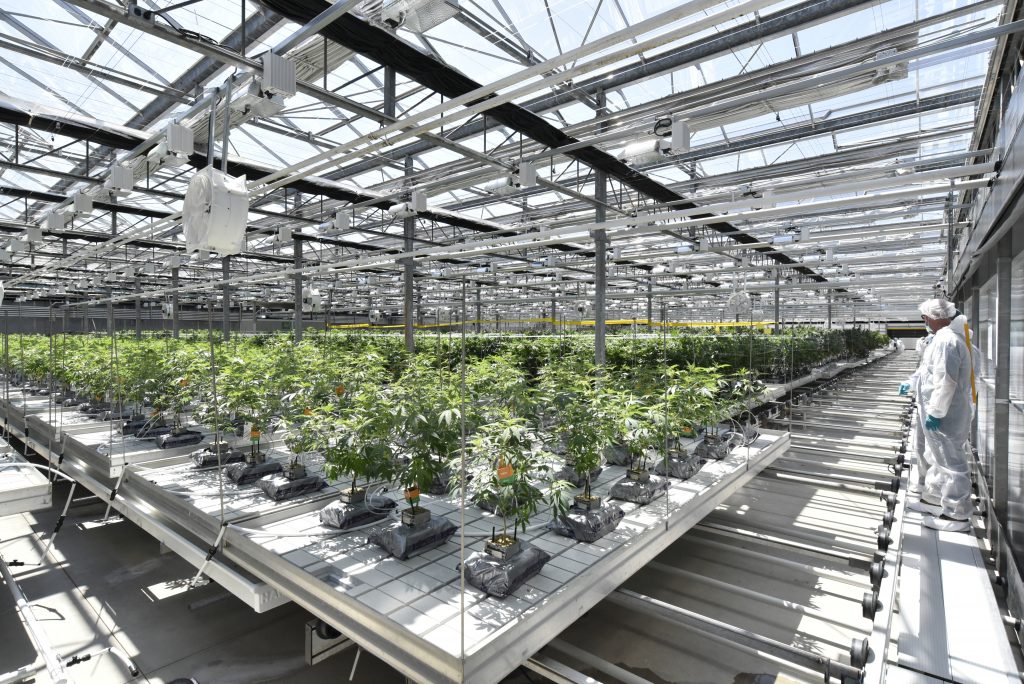
News
Industry Updates
Regulations
Legal
Business
Management
CannTrust files response to Health Canada, names special committee members
July 22, 2019 By Armina Ligaya, The Canadian Press
 CannTrust's Perpetual Harvest facility in Pelham, Ontario
CannTrust's Perpetual Harvest facility in Pelham, Ontario TORONTO – The fate of CannTrust Holdings Inc. is in Health Canada’s hands after the cannabis company formally responded to the regulator’s finding that it was illegally cultivating pot at one of its greenhouses.
The licensed producer said Monday it officially submitted its response to Health Canada on July 17, one day before its deadline, while the investigation of what transpired by its special committee is “ongoing.”
CannTrust’s special committee “takes these issues very seriously” and it is committed to working with Health Canada to bring CannTrust into compliance, said Robert Marcovitch, who has appointed as the committee’s chairman.
“Although we want to move as quickly as possible, we are mindful of the critical need to be thorough,” said Marcovitch, a board director and former chief executive of K2 Sports.
“We are determined to identify the root causes for all non-compliance issues, to take appropriate actions to address and remediate any issues with the Company’s compliance culture and to restore trust in the company.”
CannTrust added Monday that the other members of the special committee are board directors Shawna Page, Mark Dawber, and John Kaden.
The federal regulator said it received CannTrust’s response late on July 17 and reviewed it on July 18 and “will thoroughly review the information submitted and will take it into account in its decision making process.”
“Health Canada will not hesitate to take additional action if it feels warranted to protect public health and safety,” said spokesman Andre Gagnon in an emailed statement.
CannTrust’s stock has fallen more than 40 per cent since it disclosed on July 8 that it was notified by Health Canada of its finding that the company had grown cannabis in several rooms at its Pelham, Ont. facility without government approval and that employees had provided inaccurate information to regulators.
On Monday, shares were trading at about $3.54 in early afternoon trading on the Toronto Stock Exchange, down more than two per cent from Friday’s close of $3.62. That’s down sharply from $6.46 on July 5, prior to CannTrust’s disclosure of Health Canada’s findings.
CannTrust said the pot growing in five unlicensed rooms took place between October 2018 and March 2019, before the licences were issued for each of the rooms in April 2019.
Meanwhile, former CannTrust employee Nick Lalonde has said he was asked to put up fake walls and obscure unlicensed plants in photos that were submitted to federal regulators.
Health Canada has put on hold 5,200 kilograms of CannTrust’s inventory and the licensed producer voluntarily put 7,500 kilograms of products linked to the unlicensed rooms.
However, some CannTrust product which originated from the unlicensed rooms had been sold, including to various government retailers in Canada and to its Danish joint venture partner Stenocare.
The Danish company said it has quarantined five batches of CannTrust products, which are blocked from sale until regulators complete their probe.
On July 11, CannTrust put a voluntary hold on all sale and shipments of its cannabis products as a precaution as the investigation continues.
Health Canada said the product it seized from CannTrust’s Pelham site is undergoing additional testing at its laboratories.
The regulator said there are a number of enforcement tools it can use under the Cannabis Act, which include the suspension or cancellation of a federal licence or the issuance of administrative monetary penalties up to $1 million.
As well, cultivation, sales and exporting of cannabis unless authorized under the Act are criminal activities, the penalties for which range from fines to imprisonment for up to 14 years in prison.
These provisions under Division 1 of the Cannabis Act “are primarily intended to address situations where possession, production, distribution, sale, and import/export of cannabis takes place outside the legal system (for example by unlicensed individuals or organizations),” said Health Canada spokeswoman Tammy Jarbeau in an emailed statement.
“Law enforcement plays a critical role in directly supporting the purposes of the Act and it is law enforcement that has the authority to take action against illegal cannabis activity under Division 1 of the Act and against those who operate outside of the legal framework,” she added.
Print this page